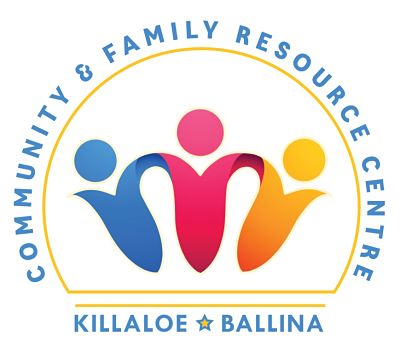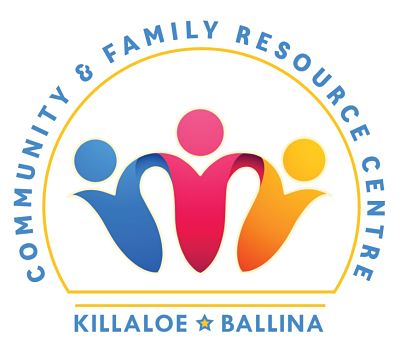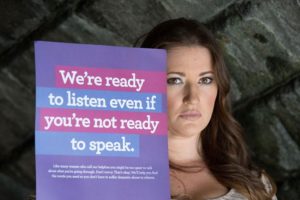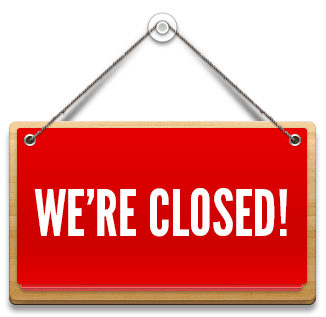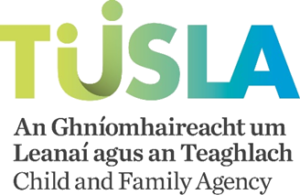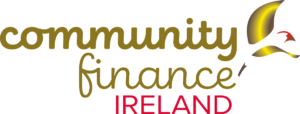Day 13: We respond to 50 calls a day on the 24hr National Freephone Helpline
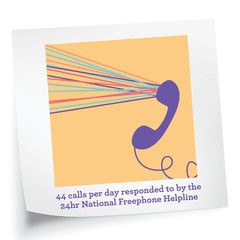 “I do not think I would have got through the past two years without the support from Women’s Aid and I know I it will get me through the difficult times still ahead.” – Louise
“I do not think I would have got through the past two years without the support from Women’s Aid and I know I it will get me through the difficult times still ahead.” – Louise
The Women’s Aid 24hr National Freephone Helpline 1800 341 900 is a service for women experiencing emotional, physical, sexual and financial abuse by a current or former husband, partner or boyfriend. We are also available for family, friends and professionals concerned about women living with domestic violence.
Our Helpline staff and volunteers answer, on average, 44 calls per day.
The National Freephone Helpline is open 24 hours a day, 7 days a week. The Helpline provides vital support and information to individual callers and serves as an access point to other Women’s Aid services and to support services and refuges nationwide. The National Freephone Helpline is free of charge to callers in the Republic of Ireland.
The confidential and anonymous Helpline is an essential service for the many women whose experiences of abuse may have isolated them from their family and social supports, and humiliated them into self-shame, self-blame and secrecy. All staff and volunteers working on the Helpline are highly trained in working with women experiencing abuse and share their support with gentleness and compassion to all callers.
We will make space for a woman to speak and be heard and to acknowledge her feelings. We are a non-judgemental service, we will never tell a woman what to do, but will acknowledge her as the expert in her own situation, and give her emotional support, options, and information to empower her to take steps to improve her safety and well-being. We will, at all times, place the safety of women and children at the centre of our responses and will place responsibility for the abuse clearly with the perpetrator.
Find out more about the service offered on the National Freephone Helpline here and our One to One Support Services here.
The Women’s Aid Helpline is fully accredited by the Helplines Association. Read more here.
Don’t be afraid to call if you are afraid of someone close.
Listen to the Women’s Aid ‘Don’t Be Afraid’ radio advertisement
Download the ‘Don’t Be Afraid’ awareness poster
The Women’s Aid ‘Don’t Be Afraid’ national public awareness advertising campaign encourages women living with domestic abuse to speak up and call the Women’s Aid National Freephone Helpline 1800 341 900.
The Don’t Be Afraid Campaign
One in five women in Ireland is affected by domestic abuse but a third of those will never tell anyone what is happening to them. We understand that it is difficult for women experiencing domestic abuse to talk about what is happening. Many women are afraid that they will not be believed or that they will blamed for the abuse. Others struggle to find the words to describe their situation. All too often, women feel alone and isolated, unaware that help is available or unable to make sense of what is being done to them.
Women’s Aid hopes that the ‘Don’t Be Afraid’ campaign will show women that they do not have to suffer domestic abuse in silence.
The campaign is supported by Elaine Crowley, presenter of TV3’s Midday programme. Speaking at the launch of the campaign, Elaine said:
“I am delighted to support the Women’s Aid ‘Don’t Be Afraid’ campaign urging women to speak up about domestic abuse. I know women are famous for talking to each other about all that life throws at us but in the case of domestic abuse, many women feel unable to tell even their closest family or friends. Others do not even know how to start to describe the terrible abuse they are suffering.
But I would like to say to any woman in this situation – don’t be afraid to call Women’s Aid, if you are afraid of someone close. They are there to listen to you and to support you. It is a first step to a safer life. I also encourage all of us to share the Women’s Aid number online using the hashtag #DontBeAfraid – you never know who might need it.”
Radio, Online and Poster Advertising Campaign
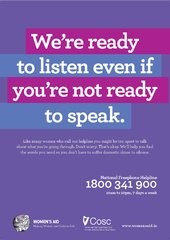 Women’s Aid Don’t Be Afraid Awareness poster. The two week long radio, online and poster national advertising campaign targets women over 18 living in the Republic of Ireland. The radio advertisement (listen here) will run on local radio stations from Monday 5th October 2015.
Women’s Aid Don’t Be Afraid Awareness poster. The two week long radio, online and poster national advertising campaign targets women over 18 living in the Republic of Ireland. The radio advertisement (listen here) will run on local radio stations from Monday 5th October 2015.
We hope that through our radio advertising we can speak directly to a woman who is living in fear, and who may be sitting at home, or listening in her car on the way to work or on the school run, and tell her that she is not alone.
The campaign poster reinforces the message that we’re ready to listen even if women are not ready to speak. Like many women who ring our National Freephone Helpline, women may be too upset to talk about what they are going through. That’s okay. We’re ready to listen and help them find the words they need. The poster will be on display in washrooms and entertainment venues throughout the country.
The same message will feature in our Facebook and Google advertisements which will run alongside the radio and poster campaign.
The campaign also includes a mail out of information packs to almost 500 professionals who support women affected by domestic abuse and to places where women seek help and information. The special packs include posters, leaflets and other items promoting the Women’s Aid National Freephone Helpline.
Support the Don’t Be Afraid Campaign
- Share the Women’s Aid National Freephone Helpline number 1800 341 900 online using the hashtag #DontBeAfraid.
- Add the Women’s Aid National Freephone Helpline number 1800 341 900 to your mobile contacts in case you or someone you know should ever need it.
- Find out how you can support a friend or family member who is experiencing domestic abuse.
- Follow Women’s Aid on Facebook and Twitter, and share information on the Don’t Be Afraid Campaign on your profile, or share this information with friends via email.
- Download a copy of the awareness poster here or request a special pack to be sent to you from info@womensaid.ie and put it up in any community space.
- Sign up for updates via our e-newsletter to stay informed and participate in further Women’s Aid actions and campaigns.
The Women’s Aid ‘Don’t Be Afraid’ National Public Awareness Campaign runs from Monday 5th October 2015. The campaign is funded by Cosc, the National Office for the Prevention of Domestic, Sexual and Gender Based Violence (www.cosc.ie) and created with the generous support of creative advertising and design company Language.
What is domestic abuse?
One in five women in Ireland is affected by domestic abuse. Domestic abuse is where one person tries to control and assert power over their partner in an intimate relationship. It can be physical abuse, emotional abuse, sexual abuse or financial abuse. In the majority of cases it is perpetrated by men and experienced by women.
In 2014, the Women’s Aid National Freephone Helpline answered 11,167 calls from thousands of abused women living in a constant state of fear. Fear of the next beating, the next attempted strangulation, the fear that the next attack will result in serious injury or their death.
The sad fact is that domestic abuse can happen to any woman, in any home and at any stage in her life. In 2014, women disclosed that they were punched, slapped, kicked, held down and strangled and beaten with household items. Women told us that they were constantly belittled, criticised, blamed and stalked and harassed via technology both during the relationship and after leaving. Women reported that they had been raped, sexually assaulted and given no option but to comply with their abusers sexual demands. Women’s freedom and options had been curtailed because of sustained financial abuse including being denied household monies, being forced to take out loans in their names only and having their employment jeopardised.
Are you affected by domestic abuse? If so, read more about domestic abuse and our support services or call the Women’s Aid National Freephone Helpline 1800 341 900, 24 hours a day, 7 days a week.
